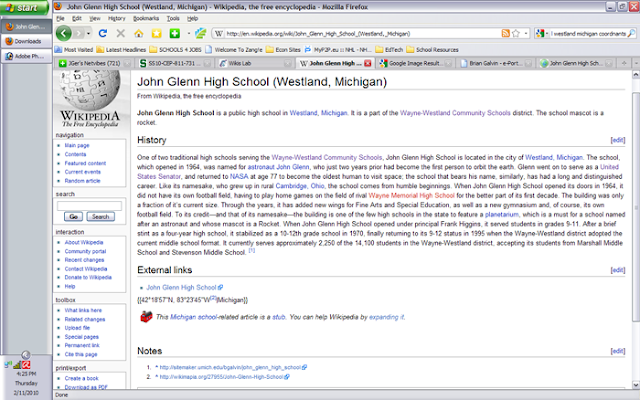In the above video Kevin Kelly described the internet’s impact on self-directed learning. There is an ever constant fear amongst the general public that new technology will envelop our lives to the point that we become sedentary and completely dependent upon the new technology. Before I watched Kelly’s talk, I always viewed this as a black and white issue. One could either argue that technology would take over our lives in a negative way, or that tools would always remain tools from which we could always step away from; never becoming dependent. However, he categorizes the internet as a technology tool that is progressively enveloping our lives, that we are/will become completely dependent on it, and that this is in fact desirable
In his talk, Kelly provides his perspective on digital age tools by linking to similar non-digital innovations.
Kelly says, “… I want to talk about…this idea that we are going to be co-dependent … I have now gotten to the point where I don’t try to remember things, I just Google it. It’s just easier to do that. And we kind of object at first and saying, ‘oh that’s awful’. But if we think about the dependency that we have on this other technology called the alphabet and writing, we’re totally dependent on it. It’s transformed culture. We cannot imagine ourselves without the alphabet and writing, and so in the same way we’re going to not imagine ourselves without this other machine not being there.”
While I would argue that the web is a communicator of knowledge and language (much more so than an actual language in itself), comparing the web to a language offers a good illustration of how co-dependency can be a positive thing. It touches on Resnick’s argument that tools don’t eliminate or destroy intelligence, it simply shifts responsibility. Kelly says we don’t try to remember things, we just Google them. Resnick would say knowledge isn’t lost to Google it’s just in a different location. I see no problem with this conservation theory; in fact it’s desirable that knowledge be communicable and readily accessible. However being able to export ideas should make room to construct more complex thought, not take all burden off the learner. The calculator shifts the responsibility of solving simple equations from the brain to a tool so that more thought can be put towards complex equations. Google has aided learning via the internet in a similar manner.
The web is always with us on our laptops, phones, vehicles, and other devices. Letting the web flow around us at all times allows for immediate tap in to the pool of knowledge available. I believe very strongly in the relevant timing of instruction. During the 2008 presidential race I was teaching sections of AP political science and was able to integrate current events into my unit on the American election process by way of the internet with tools such as 270towin.com. Unfortunately the curriculum rarely aligns itself to events in the outside world and the students’ current state of mind like this. In self-directed learning, the curriculum will vary depending on student interest, however content is always relevant. If I happened to be watching a movie and was interested in a particular actor/actress’s work and wanted to know more about them, Wikipedia or IMDB are resources that I might tap into to direct my desire to continue my learning. Learning in this way is always sparked by current interest, is immediately satisfied with further exploration for understanding, and is delivered in adequate doses because it is at the learners’ discretion when to cease the learning process. I take great interest in learning how I can translate this self-directed learning into the more structured environment of the traditional classroom.

